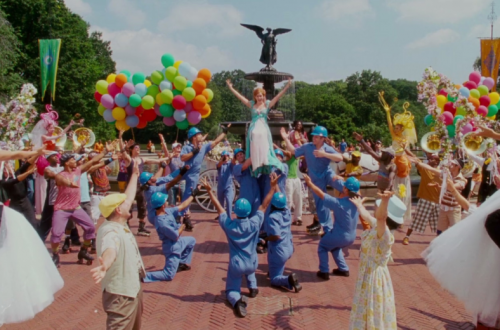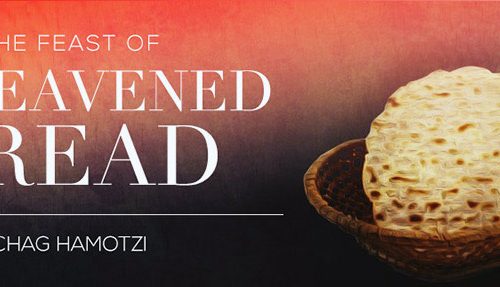The Parenting Wilderness
Leadership is broken because leaders are unbroken
Wilderness Wanderings Series:
Learning to Live the Zigzag Life
Among all the books on parenting that are floating around these days, there is one missing. It’s hard to believe that we’ve overlooked anything, but we are lacking one vital title.
I’m not sure how the publishers would respond to this, but in this time of self-publishing, they are not as dominant as they once were, which means this book might make it to the market.
The title?
Parents Who Did Everything Right and Got it Wrong. There, I told you it would be a best seller. Well, maybe not.
Unwanted Insight
Parents who did everything right and got it wrong most likely don’t want to read about their mistakes, although the book would have to offer some help in how to recover from their errors now that their children are adults and the parents realize what they did. And, unfortunately, younger parents who are still trying to do everything right don’t want to read about the reality that no parent can possibly do that, although sometimes we feel as if we can’t do anything right with a two-year old or a sixteen-year old.
Between a confused psychology and a distorted theology, we seem to be committed to evangelical perfectionism. Even if we never say it, we act like it and strive for it—a self-defeating drive if there ever was one. We must realize that no one ever gets everything right, especially parents. We try, we try very hard. We know what the stakes are for our children as well as for ourselves. No pain in my life hurt as much as when I missed a goal I had for my sons as they were growing up. I wanted so much both to do the right things and to do things right.
Though the parenting wilderness can be hard, I must remind myself that being in the wilderness is not bad, even as it wasn’t bad for Israel when God led them. God’s purpose in taking us into the wilderness is not to hurt us or discourage us; it is to purify and prepare us to for a greater future than any of us ever thought possible.
If Israel had gone first into the Promised Land without the wilderness experience, they would have been destroyed. The wilderness only became discipline for Israel when they refused to trust God and take the risks He wanted them to take. His plan was to keep the Children of Israel in the wilderness long enough for them to learn how to enter into a deeper, intimate relationship with Him. Once they learned to do that, He wanted to lead them through the battles with the Canaanites into the peace and tranquility of a free nation in fellowship with Him.
When we end up in the parenting wilderness, God’s desire is not for us to stay there, but to learn to be more effective than ever in raising our children. Once we have grown to trust Him more fully, He is ready for us to move forward in the joy of parenting.
If you feel you are failing with your children, get some help, learn what you can do to change the situation, and take the steps you need to make the necessary adjustment. It’s most often not as easy as it sounds, of course, and especially because you have so much at stake in your child. It may take more time than you want it to and you may need more help than you realized at first, but God’s purpose is not to make our parenting a wilderness but a great joy.
There are some self-imposed parenting wildernesses we need to be aware of.
Deciding to be Perfect Parents
None of us is perfect and none of us ever will be. No parent ever raised a perfect child (except in our own eyes) and no parent ever will. Striving to raise perfect children is guaranteed to produce pain for you and even more for your child. Often the effort to raise perfect children reveals far more about the parents than it does the children because it’s all about the parents and their need to look good before others. For whatever reason, they must be right and can’t face anything less than perfection in themselves, and they treat their children as extensions of themselves.
This drives their children either to try to look as good as their parents or to go as far in the opposite direction as they can. No child can stand up under the weight of his parents’ perfection, so sooner or later the pressures of life will break down the façade of perfection to reveal terrible flaws that have been covered for many years. That results in terrible pain for both parents and children. The drive for perfection is one of the most horrible wildernesses we can ever endure.
Parenting is not about the parents; it’s about the children. If it were about the parents, the Father in the parable of the prodigal son would never have let His son insult Him or given His son his inheritance to waste. Apparently that’s the only way He could have the kind of son He wanted, one who was humbled by repentance and ready to live responsibly in the Father’s love.
Becoming a parent is the biggest risk you will ever take in life, and it continues to be risky as long as you’re alive because you never know what your children are going to do. Children, particularly adolescent and young adult children, make decisions on their own, decisions that can have lasting results. Children choose to sin despite what we teach them, and they may even blame us for their sin.
Parents cannot control those choices and raise a healthy adult any more than the Father of the prodigal son could prevent him from choosing to do what he did. The Father certainly knew what the son was going to do, but he chose to pay the price of pain, a Father’s pain, so He could have a son and not a robot. Perfect children grow up as robots at best, automatons imitating their parents and never growing into their own identities.
Some parents seem to need little imitations and not real flesh and blood children who become real in life by learning to navigate their own wildernesses. Unless our children see us struggling with our wildernesses, they will never learn to enter into life and become real.
Raising our Children to Avoid the Hurt We Experienced Growing Up
One of the biggest and most human parenting mistakes we make is trying to prevent what happened to us when we were growing up from happening to our children. Now if we were sexually abused or grew up in an addicted home, we definitely must prevent that from happening. And if we were sexually promiscuous or chemically addicted, we don’t want that for our children, of course. But it doesn’t follow that because we did destructive things to ourselves, our children will do the same.
Trying to prevent what happened to us is like a general who fights today’s battles according to the last war: they lose both the battles and the war. The problem with that is that our children are not growing up in the home we grew up in. Our home is different, our marriage is different, our values may be different, certainly our culture is different.
Our children are not growing up in our childhood home or in our childhood world. We are in unchartered territory, but then parenting has always been unchartered territory. We cannot parent simply to avoid the pain we had; we have to parent to achieve God’s call on us as mothers and fathers and God’s will for our children.
The question is not how can I help my children avoid my pain as much as it is how can I help my children find their fulfillment in God’s plan. They’re not living my life; they’re living their own lives. My mother grew up in a broken family with an abusive mother and a lazy father, and my father’s dad died when my father was fourteen. My mother wanted to prevent what happened to her from happening to me while my father wanted to meet a need I didn’t have—he tried to give to me what he longed for after he lost his dad. To do this they exercised great control over me and used me to meet their needs. But I wasn’t in a broken and abusive family and I had a father during my teen-age years, so I didn’t need what they tried to give me and, eventually, I rejected their efforts and broke their control, which created great hurt for them and much struggle for me.
If you feel you must parent to prevent your pain from happening to your children, do so—but remember they’re not growing up in the family you grew up in. They’re growing up in your family, so be certain you’re not making your parents’ mistakes, but don’t become so focused on preventing your hurt in your children that you miss other needs creating unnecessary hurt in them.
Parenting is a pendulum between generations as we bounce from one effort to another. We do our best, but all parents have blind spots that impact our children. When those blind spots show up, we must be humble, not defensive, willing to acknowledge what we did wrong, and do the best we can to overcome it. None of us ever escapes from some part of the parenting wilderness.
What can you do when you find yourself in the parenting wilderness? Here are some thoughts, though this is not an exhaustive list. However, these disciplines will help you through the hard times of the parenting wilderness.
1. Pray
When our sons turned thirteen I realized I could not direct them the same way I did when they were younger. I had to give them space to make mistakes and learn, or they would never become the men I wanted them to be. So I made a prayer list for each of them and spent significant time daily seeking God’s wisdom and grace, especially when I was facing an issue I could not talk about with them but that concerned me greatly. I saw significant answers to prayer that either helped us avoid the parenting wilderness or got us out of it before it became overwhelming.
2. Understand that parenting is spiritual warfare and our enemy is incomprehensibly evil and ruthless.
Satan does not see our children as the cute, innocent, wonderful beings we rightfully see them to be. He sees them as ways to get at us, to bring hurt and pain into our lives because he entices them toward destructive actions, even addictions, that devastate them and shatter us. Pray against the evil one, dress your family in the armor of God, hate him for all he is, and cry out to God for your family. I learned to pray this way for my children from Job and I understand much better today why he prayed as he did.
Parenting has brought us the greatest joy of our lives, but we have also known something of the wilderness as well.
3. Know your children are a stewardship from God, not a reputation maker for you.
As your children mature, look to understand how God has made them, what He made them to be, and realize that you do not decide who they are and how they will express their identity. You help them discover their identity and their future, but parents who try to determine their children’s future may well force them to go in a harmful direction that creates resistance and resentment as they are growing up or great pain later in their lives.
4. Love them for all they’re worth and then some.
Tell your children you love them every day—in fact several times a day—and hug them every chance you get, even when they don’t want you to. Grab your nearly six-foot junior higher, plant a big kiss on him, hug him and proclaim your love to him no matter how hard he fights you. He may resist it, but down inside he needs to know it. Whenever there’s tension never let it end without making sure your children know you love them.
5. Pray together with them and immerse them in God’s word early and often.
Nothing unifies and binds like prayer and God’s word. One of our neighbors told my mother when I was a child and she taught me to memorize Scripture that I would hate the Bible when I grew up. She said my mother was overdoing it. My mother had a very simple but deep faith, which she passed on to me, and today I love the word and prayer. Our neighbor was wrong. Just don’t preach at your child when they disobey or you feel threatened by what they’re doing.
There are no guarantees in parenting, but we can plant and water the seeds of truth with prayer for years to come.
6. Be humble before your children
If you’re wrong, you’re wrong, and when they’re right and know it, you must acknowledge it. The parent who won’t do that doesn’t lose face, he loses his child. Don’t hesitate to apologize and ask for forgiveness. Your children’s respect for you will grow, as will their willingness to listen to you and obey you.
7. Listen to your children
They may well have a viable solution to a family problem. You should not put decisions on them that you are responsible to make, but listening to their voice gives them a sense of value and respect they will treasure for as long as they live. It also helps them learn how adults make decisions. Becoming part of family concerns and participating in the resolution of such issues lifts your children to a new level of ownership and growth they would never have otherwise.
Nothing will bring you more joy than parenting, but all of us end up in the parenting wilderness at times. Remember the wilderness is not a bad place; it’s not negative to be there. The wilderness is always a stop on the way to the Promised Land, the way to God’s opportunity and blessing that you would miss if you didn’t spend time with Him being prepared for His future for you.
Don’t be afraid to go there as a parent, but once you’re there, listen and learn as quickly as you can so you can move forward on your journey toward the parenting blessings God has for you.
From "The Parenting Wilderness" on www.leaderformation.org/blog
 About: The Broken Leadership Blog is about changing the leadership conversation from what we are doing with our hands to what God is doing through our hearts.
About: The Broken Leadership Blog is about changing the leadership conversation from what we are doing with our hands to what God is doing through our hearts.





